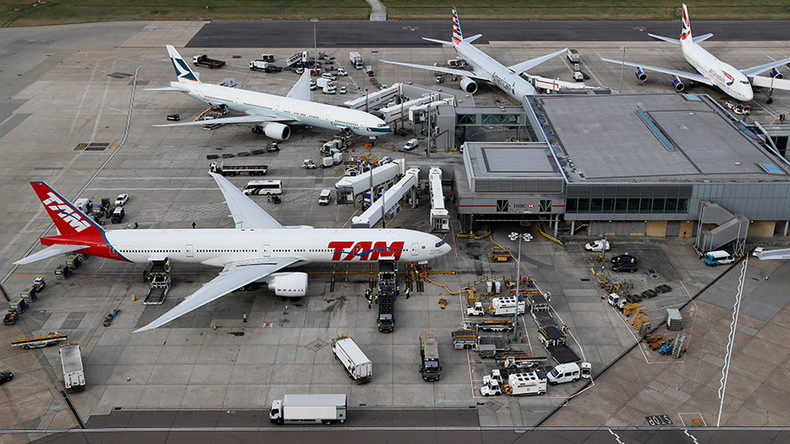British lawmakers voted strongly in favour of building a new runway at London’s Heathrow Airport, paving the way for the airport’s expansion after decades of delays and policy U-turns.
Lawmakers voted 415 to 119 in favour of the move, a decision that has long divided parliament regardless of party lines. Some have opposed the extra noise and air pollution it will bring to London, particularly its western regions.
In a sign of the battles still to come, London Mayor Sadiq Khan said he would bring legal action to block the expansion while the owner of British Airways warned that it would not accept higher charges for consumers and airlines.
“The Government is pressing ahead with the wrong option, resulting in intolerable noise levels and worsening air quality,” Khan said on Twitter.
Heathrow’s most high-profile opponent, foreign minister Boris Johnson, who once said he would lie down in front of bulldozers to stop the expansion, was in Afghanistan and so missed the vote – sidestepping the embarrassment of either not supporting the government or breaking his word.
In a letter to voters according to the Evening Standard newspaper, Johnson said he had not resigned over the issue because it would have achieved “absolutely nothing” as the odds in parliament were on Heathrow getting the go-ahead.
Prime Minister Theresa May said the 14 billion pound ($19 billion) expansion of Europe’s busiest airport – which is operating at full capacity – shows that Britain is open for business after Brexit.
“She believes it sends out an important message about global Britain and making the most of the opportunities which lie ahead of us,” her spokesman told reporters.
Heathrow has said construction could start in 2021, with the runway open in 2026.
Before it can get to the planning stage, any legal challenge would see a judge review the lawfulness of the government’s policy.
Campaigning group Greenpeace UK said it would work with councils across London and the mayor to bring a legal challenge.
“If ministers don’t want to uphold the laws protecting us from toxic fumes and climate change, we’re going to ask a court to do that,” it said.
Other protesters took their argument to the parliament, with around 12 campaigners staging a “lie in” at the central lobby of the Houses of Commons around an hour before the vote, chanting “Vote No, Heathrow” to press home their opposition.
DECADES OF INDECISION
The decision to expand Heathrow, owned by Spain’s Ferrovial , the Qatar Investment Authority, China Investment Corporation and other investment companies, follows almost half a century of indecision on how and where to add new airport capacity in densely populated southeast England.
If finally opened, it will be the first full-length runway built in the London area for 70 years.
It passed through parliament despite strong objections from even some of May’s own ministers, while many opposition Labour lawmakers supported the government after being allowed to vote as they desired rather than with the party’s leadership.
The Scottish National Party said it abstained over concerns that the government would not share the economic benefits with Scotland.
Earlier, Transport Minister Chris Grayling tried to win over lawmakers who represent constituencies far away from Heathrow by saying the government would safeguard connections between the country’s main hub airport and regional cities, including making some routes exempt from air passenger taxes.
He also sought to reassurance lawmakers that the cost of expansion would not fall on taxpayers and the project would be delivered within existing climate change and air quality obligations.
“At stake are thousands of new jobs and the country’s ability to compete on an international stage and win new global trade,” Grayling said.
“I hope colleagues from across the House will now put aside party and political differences to take a decision in the long-term national interest.”
Business groups welcomed the move, with the Federation of Small Businesses saying: “The debate is now over, it is time to build”.






